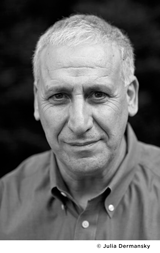POETRY An inexplicable (though not incomprehensible) event in language; an experience through words. Jorge Luis Borges believed that “poetry is something that cannot be defined without oversimplifying it. It would be like attempting to define the color yellow, love, the fall of leaves in autumn.” Even Samuel Johnson maintained, “To circumscribe poetry by a definition will only show the narrowness of the definer.”
Poetry is a human fundamental, like music. It predates literacy and precedes prose in all literatures. There has probably never been a culture without it, yet no one knows precisely what it is. The word poesie entered the English language in the fourteenth century and begat poesy (as in Sidney’s “The Defence of Poesy,” ca. 1582) and posy, a motto in verse. Poetrie (from the Latin poetria) entered fourteenth-century English vocabulary and evolved into our poetry. The Greek word poiesis means “making.” The fact that the oldest term for the poet means “maker” suggests that a poem is constructed.
Poets (and others) have made many attempts over the centuries to account for poetry, an ancient and necessary instrument of our humanity:
Dante’s treatise on vernacular poetry, De vulgari eloquentia, suggests that around 1300, poetry was typically conceived of as a species of eloquence.
Sir Philip Sidney (1554–1586) said that poetry is “a representing, counterfetting, a figuring foorth: to speak metaphorically: a speaking picture: with this end, to teach and delight.”
Ben Jonson (1572–1637) referred to the art of poetry as “the craft of making.”
The baroque Jesuit poet Tomasso Ceva (1649–1737) said, “Poetry is a dream dreamed in the presence of reason” …
Read more in Little Star Weekly
From Edward Hirsch’s new handbook, A Poet’s Glossary.
Edward Hirsch is the author of eight books of poems, most recently The Living Fire: New and Selected Poems, and four books of prose. He is the president of the John Simon Guggenheim Memorial Foundation.
Excerpted from A Poet‘s Glossary by Edward Hirsch. Copyright © 2014 by Edward Hirsch. Used by permission of Houghton Mifflin Harcourt Publishing Company. All rights reserved.

